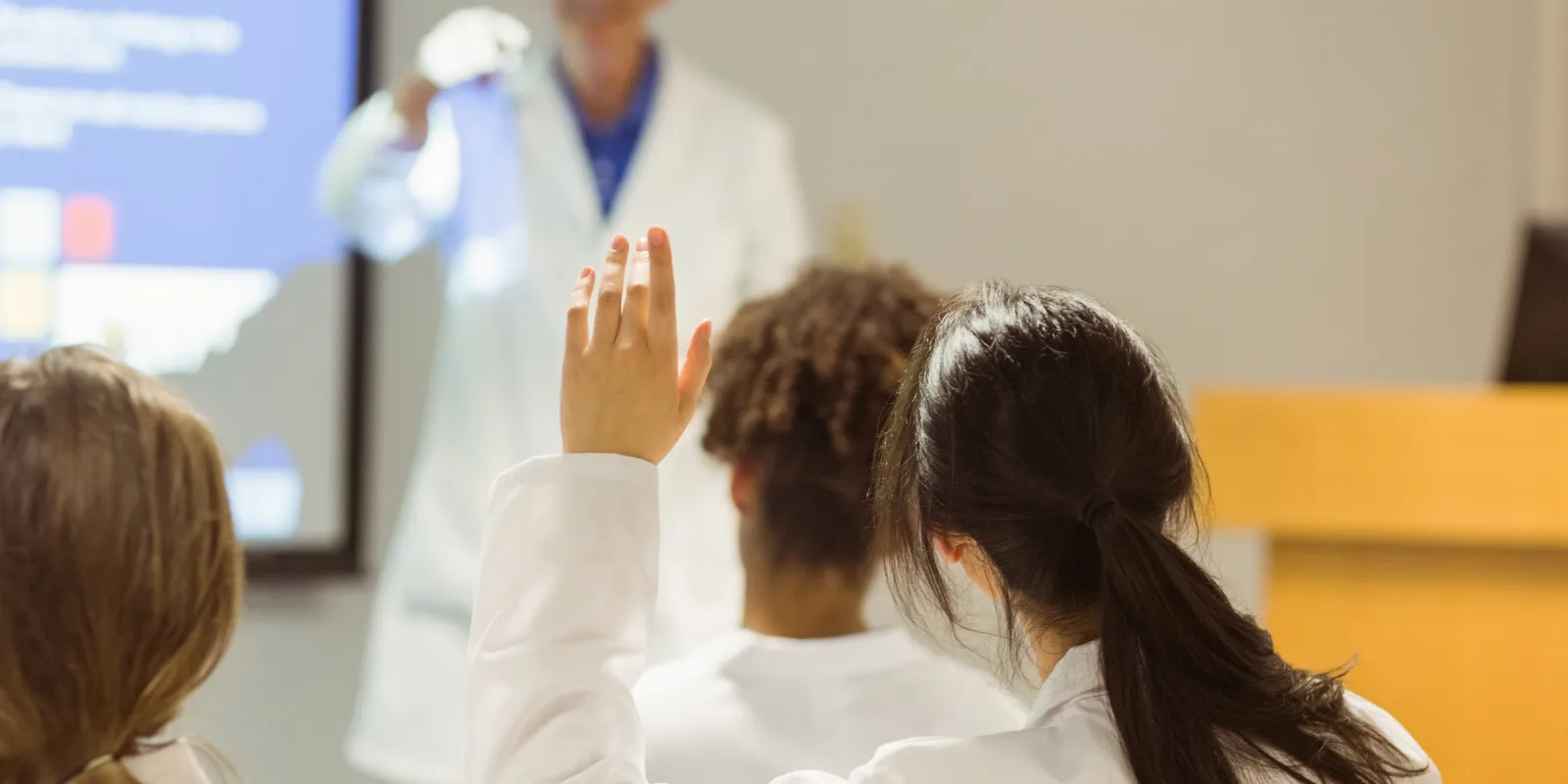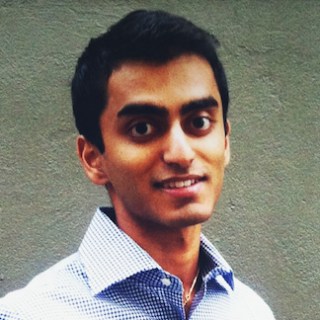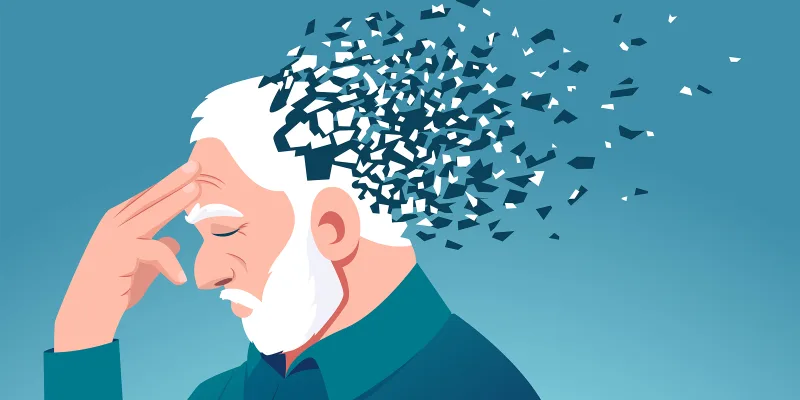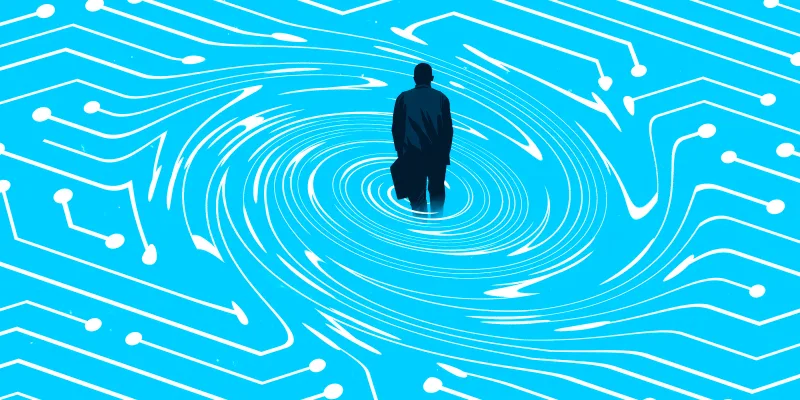
I always expected that residency would teach me how to take care of patients, and I was right. In three years, I learned the diagnostic criteria for acute pancreatitis, the foreboding signs of a decompensating cirrhotic, and the classes of medications used to treat hypertensive emergency, along with hundreds of other medical facts, clinical frameworks, and evidence-based guidelines. But now, as a hospital medicine attending at a large tertiary care medical center, I realize that residency provided me with so much more than medical knowledge.
Many of my habits — the manner in which I introduce myself to patients, the style in which I give and receive feedback to peers, the ways I rejuvenate on a day off — were also borne of the training I received in residency. As I reflect on those years of growth, I am amazed at how much I was shaped by the non-clinical aspects of my training experience. To current and future trainees, I encourage you to be deliberate in identifying, practicing, and learning the “hidden curriculum.”
- Learn how to introduce yourself to patients. Patients will always remember their first impression of you. How were you dressed? Did you smile or were you rushed? How did you pronounce their name and more importantly, did you care if you got it right? Did you call yourself “doctor,” and if you did, did you yourself believe it? Introductions are everything — they are the material by which the rest of your interactions will be built, so be deliberate about them.
- Learn how to wake up early. There will be many days in residency when you have to wake up before the sun has had a chance to rise. These will be weekdays and weekends, holidays and birthdays. Some will be after a week of vacation and others will be after a night of call. Waking up early is an acquired skill, similar to diuresing a patient in heart failure or placing an arterial line. Seek out ways to become better at it.
- Learn how to keep calm in high-pressure situations. I remember several instances during my residency when I was asked to make quick yet important decisions in high-pressure situations, such as being the junior resident alone in the ICU overnight, or the senior resident supervising an intern on a high-risk procedure. The ability to think clearly and perform well under pressure comes naturally for some but takes practice for almost everyone else. Embrace these situations in your training, for they will serve you well throughout your career.
- Learn how to be a lifelong learner. Try to develop a method of learning that you can rely on throughout your career. After residency is over, you won’t have the luxury of tailor-made syllabi and refined teaching curricula. You won’t have dedicated morning reports and lunch conferences. Instead, your learning will be self-directed. Early in residency, I began using Evernote to organize my medical notes. I created a new note for every common medical diagnosis (e.g., alcohol withdrawal) and used it to store frameworks, tips, and teachings. In my current practice, I frequently refer to these notes as a way to jog my memory and re-learn facts that I may have forgotten. Some of my peers used Dropbox to save important journal articles or Google Drive to take notes during lectures. It does not matter as much what your system is as long as you have one.
- Learn how to give and receive feedback. Feedback is critical to the growth and success of any team, but learning how to give and receive feedback can be challenging. When I give feedback, I always ask myself if what I am critiquing is a personality trait or an area for improvement. For example, sharing with someone that they appear anxious may seem like feedback but in reality, it is likely to be interpreted as a personality critique. Conversely, suggesting to an anxious-seeming person that they might mitigate their anxiety by beginning rounds with the patients they are most worried about is actionable feedback that can be used to strengthen an identified weakness. Find opportunities to give and receive feedback, and learn from each of these interactions.
- Learn how to find time to exercise. In residency, I despised the cognitive dissonance created by telling patients to eat healthy, sleep well, and exercise while failing to act on those principles myself. Of course, y(our) job is often demanding, inflexible, and unforgiving, and I whole-heartedly believe that systemic change is needed to improve the ability of physicians to pursue their own wellness. But until that change occurs, we’re the ones suffering from sedentary lifestyles and poor health choices.
- Learn how to make the most out of limited time. In our residency program, weekends were often very busy. In order to provide half of the residents a weekend day off, the remaining residents would cover twice as many patients. These days forced me to develop habits to survive in rushed clinical situations. I became adept at knowing which one or two questions I could ask to rule out the most concerning diagnoses on my differential and developed methods for writing succinct but accurate progress notes. One of the unfortunate truths of modern medical practice is that you will almost always be stretched too thin. There will always be more patients to see and not enough time to see them in. Residency is a perfect opportunity to begin learning how to manage this uncomfortable reality.
- Learn how to enjoy your job. This item is more important than any other on the list. Your experience in residency will largely influence your lifelong emotional relationship to the practice of medicine. If residency causes you to feel overworked, underappreciated, and resentful of your peers and patients, then you are at high risk for feeling that way into your first several years of independent practice. Find the aspects of your job that you appreciate and invest in them – whether that’s spending more time at the bedside, teaching medical students, doing translational research, or working in under-resourced settings. Learning to love the job is as every bit as important as learning to do the job. The latter is how fast the car can go while the former is whether there is any gas left in the tank.
Residency is a rewarding period in any physician’s career. It is protected time to develop new skills and refine old ones, to advance strengths and mitigate weaknesses, and to learn from the experience and expertise of peers, patients, and educators. While you will undoubtedly acquire a long list of clinical skills, remember to also be mindful of the “hidden curriculum” — the skills that are rarely mentioned but are equally as important.
Muthu Alagappan is a physician, engineer, and entrepreneur interested in transformative health care technologies. He is an attending physician at Massachusetts General Hospital and a consultant to digital health startups.







